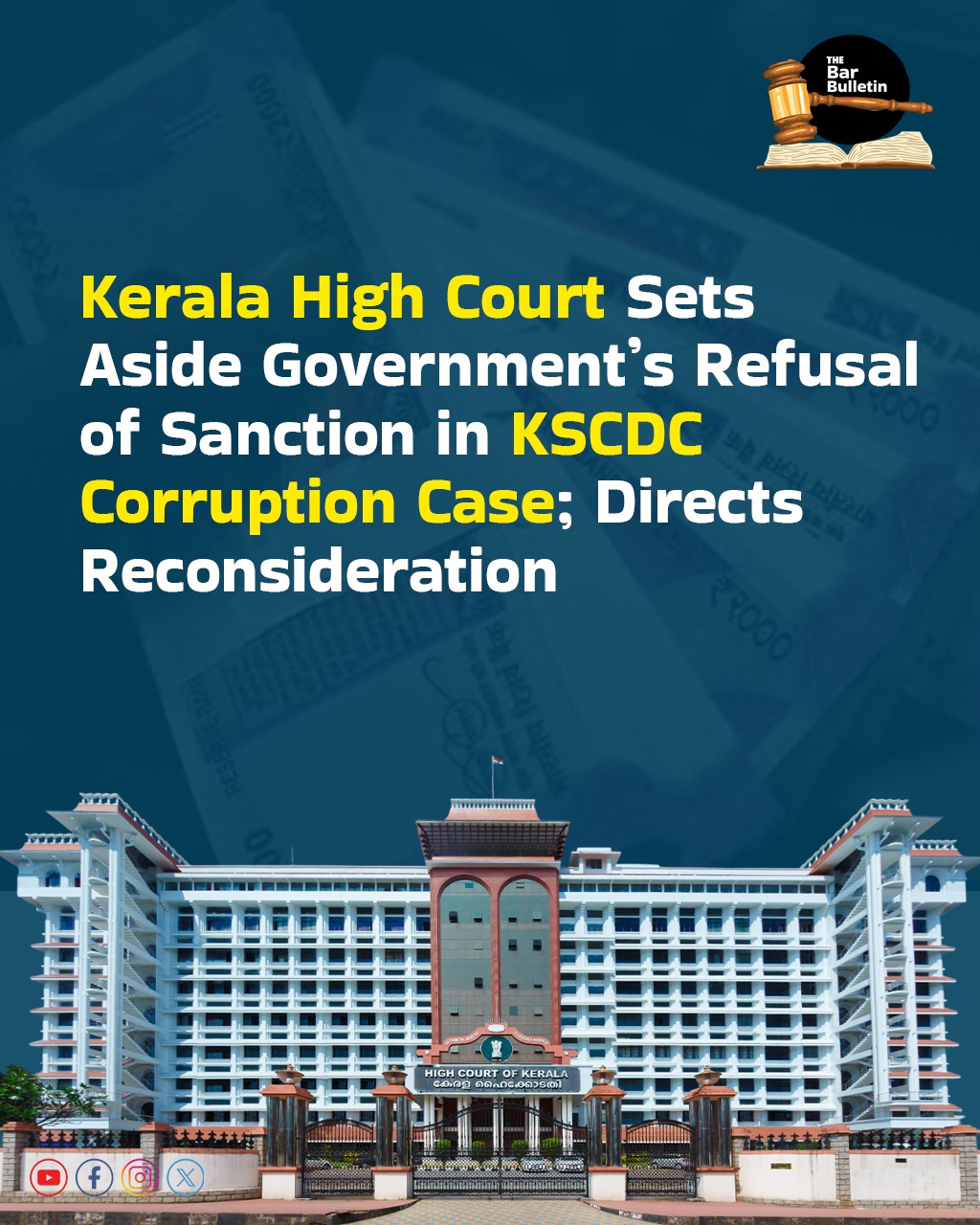The Kerala High Court while dealing with petitions arising from the CBI investigation into corruption in the Kerala State Cashew Development Corporation (KSCDC), set aside the refusal order and directed the Industries Department to reconsider the CBI’s request for sanction within three months.
In the present case, the Former Managing Director and former Chairman were accused of conspiring with trader to manipulate cashew procurement contracts between 2006–2015, causing huge losses to the corporation and the State. The CBI, after its probe, filed a final report and sought sanction to prosecute, but the State Government refused sanction in 2020.
The de facto complainant challenged the refusal, while the accused sought to quash the proceedings on the grounds that sanction was mandatory and that no prima facie case existed. The Court examined the effect of the 2018 amendment to Section 19 of the Prevention of Corruption Act, which requires sanction even against retired public servants. It held that though the amendment is prospective, since cognizance was taken after the amendment, sanction was indeed necessary.
On merits, the Court found the Government’s refusal of sanction (Ext.P3) to be unsustainable as it ignored critical materials showing diversion of funds, violation of procurement rules, and misuse of official position. It also clarified that officers of Government companies like KSCDC, while “public servants” under IPC, are not entitled to protection under Section 197 CrPC. Hence, prosecution under IPC offences does not require sanction under Section 197.
Accordingly, the Court set aside the refusal order and directed the Industries Department to reconsider the CBI’s request for sanction within three months. Proceedings before the Chief Judicial Magistrate, Thiruvananthapuram, were ordered to be kept in abeyance until then. The writ petition was partly allowed, while the accused’s pleas to quash proceedings were dismissed.

